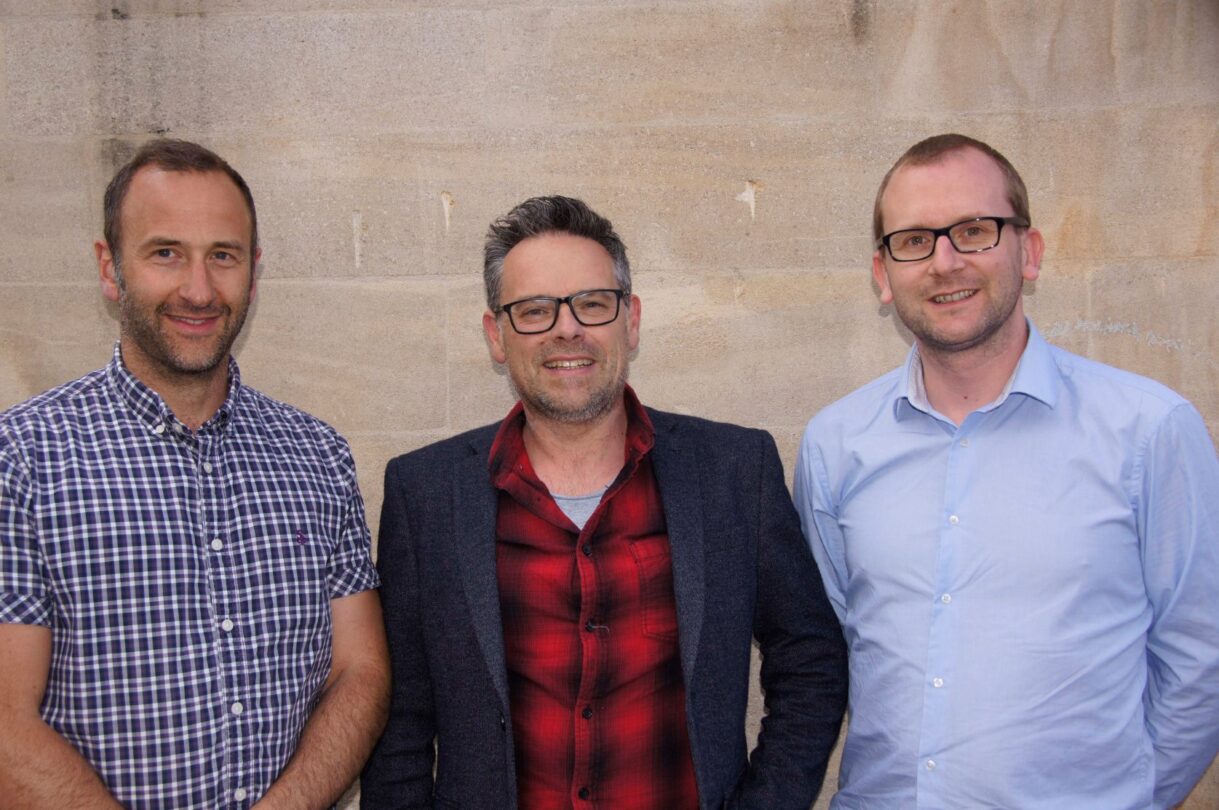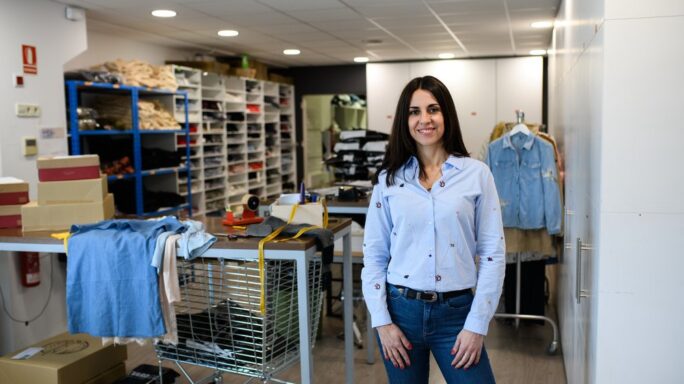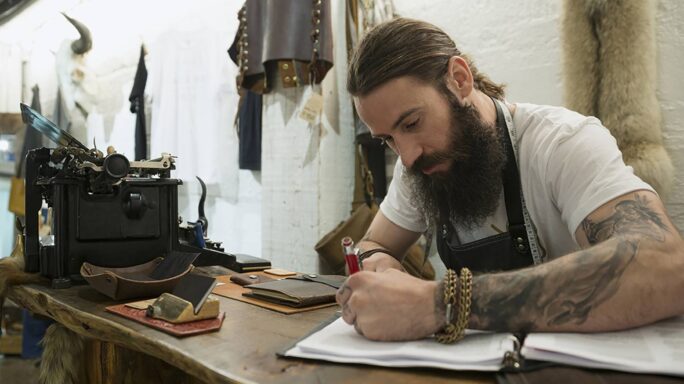Money Matters
Rockit: How grants and crowdfunding brought a baby rocker to life
Rockit is a hardware startup that by intelligence use of grants, awards and crowdfunding has proved a runaway success.

Matt Dyson is the co-founder of hardware-based startup Rockit. In this interview, which is a part of a series in partnership with content creators the Startup Van, Matt talks about the origins of his business and how grants and crowdfunding helped his team create a successful product.
Ensuring a baby sleeps is good for its health – and also that of its parents. How else can they get their own well-deserved rest? Rocking a baby to sleep is handed-down generational wisdom but startup Rockit is the first to apply portable technology to the trick.
The company’s eponymous compact rocking device attaches to the handle of a pushchair and gently undulates via a silent motor. The pushchair is rocked and the baby encouraged to nod-off.
Judging by the ecstatic reviews on Amazon, it’s a simple yet devastatingly effective piece of tech.
Light-bulb moment and birth of Rockit
Rockit was founded in 2016 by Nick Webb, Matt Dyson and Matt Sparrow. The idea came from Nick, who conveniently has a PhD that involved research into vibration and acoustics.
With his baby daughter Abigail frequently waking up whenever the pram stopped moving, he was struck by the idea for what would become Rockit. In the middle of the night, and after setting Abigail to sleep once again, he went to his basement workshop and dismantled an old computer printer to salvage its motor.
Soon he had a crude but effective prototype that he showed to brother-in-law Matt Dyson at a Christmas party. Matt’s background was fortuitously in advertising and teaching product design. As you might expect, the holiday season for the two of them was less about turkey and more about product development.
The first step was to Google to see if anybody else had thought of it. Although huge rocking platforms were available, nobody had dreamed-up the idea for a portable device.
“Straight away I just thought, wow – great product, and great idea,” says Matt Dyson, speaking to Sage Advice. “It was so compact and effective. I immediately gave up my teaching job to work on it full time.”
Matt teamed up with another Matt – this time fellow designer Matt Sparrow – and with the use of 3D printing, they came up with the distinctive Rockit design that’s based on a sci-fi-inspired rocket.
It’s feasible to end the story here by saying “the rest is history” because that was just two years ago and Rockit is now sold around the world, including in John Lewis here in the UK. The company has a manufacturing base in China and product warehousing in the UK along with a head office in the team’s native Bristol.
Rockit is already cash flow positive and still privately held. However, how they raised funding offers a number of incredibly valuable lessons for anybody considering a hardware-based startup.
Startup Stories
Facing business challenges and want some inspiration to overcome them? In this free guide, a group of business owners share their experiences and offer advice that can help you keep moving your business forward.

Government help
Among the first money the company received was a £5,000 Innovate UK voucher. This UK government initiative is intended to help startups get crucial early advice, provided they use it to get “specialist help to meet a business challenge”. In Rockit’s case this was taking care of intellectual property (IP).
“We’d turned Nick’s fantastic invention into a marketable product,” says Matt. “And we realised very quickly that it was something we needed to protect.”
The voucher was spent on seeking trademarking and a provisional patent, but none of this was about furtively guarding the idea. For Matt and his co-founders, the IP protection ensured they could get out there and start proving the viability of the product – a crucial step in the early life of any start up that’s often neglected.
Matt says: “We were really keen to get in front of people as quickly as possible. I think a lot of designers, inventors, hardware startups and so on are really worried about revealing their product. Right from the start we knew we had to protect as quickly as possible so that we could start having conversations. We knew we had to move really quickly and get that first to market advantage.”
“We applied for an Export 4 Growth grant and that enabled us to pay legal fees for writing up distribution agreements” – Matt Dyson
The team initially spoke to multiple IP specialist trademark lawyers, taking advantage of the free half-hour consultation they offer. This allowed them to get free perspectives but also ensure they found a firm they felt they could work with and that understood their goals.
Further government help would be sought later following the team’s attendance at the Kind + Jugend trade fair in Germany. As with their attendance at an earlier UK trade fair, prior to their even having manufacturing in place, the Rockit proved a huge hit. They returned with a full book for international orders and realised they needed help.
“We applied for an Export 4 Growth grant and that enabled us to pay legal fees for writing up distribution agreements. It helped pay for additional IP in terms of trademarks and design registrations in the likes of America, Canada, Australia, etc, and it also enabled us to pay for translations for both the packaging and the instructions.”
Funded by the European Union, Export 4 Growth is limited to the south west of England and in addition to funding provides advice via international trade advisers linked to the Department of International Trade. Read this article on government grants for more help in this area for your business.
Awards and grants play a key role
At the same time as getting this funding, Matt and his co-founders were also entering competitions. This was fiscally motivated, in part, but also undertaken with other benefits in mind.
Rockit was one of two finalists in Baby Product Association Innovation Award, for example, and aside from getting them much-needed recognition, this meant they were invited to exhibit at their first trade fair. They also won a Design Council Spark award, which would eventually bring a substantial monetary award. However, initially it delivered business and design mentoring via the accelerator programme.
Matt says: “From Nick initially showing me the design – that was January 2015 – we launched the product in September 2017. Lots of hardware product-based businesses take a lot longer to get to that stage. We give the Design Council lots of credit in that respect. We were able to pay for the tooling for our first production run and further protect all the IP in territories we knew we were going to launch in.”
It’s via the Design Council that the team also learned of the vital manufacturing contacts they needed in China via conversations with their mentor and other winners. Matt emphasises the important of simply talking to people.
He says: “I did a lot of networking locally in Bristol and also in London – going to startup meetups and entering competitions like The Pitch, which was a big competition that we entered and were finalists in. All of that then enabled us to expand our network of contacts and start asking people: What awards or grants have you applied for? What’s available?”
So, what can you learn from the way Rockit undertook so many competitions, grants and funding applications?
On the one hand there was a basic need to generate as much funding as possible in those early days but, Matt explains, the team required other things.
Top of the list was validation. They needed to prove beyond doubt that their product was something people actually wanted and would buy.
Even if the award or grant in question didn’t provide validation per se, it often opened other useful doors for the team – such as that initial trade show visit wherein, despite only having the prototype to show off, Rockit was a runaway success with chain stores like the sadly departed Babies ‘R’ Us approaching them with potential orders.
Matt says: “There’s nothing like getting your product in front of big buyers for national and international chain stores to validate it. There’s no point in flogging a dead horse. If people are saying, no, we don’t think this is a goer, then you’ve seriously got to look at the viability of it. We were really keen to get in front of those people as quickly as possible.”
Angel investment and crowdfunding
The validation that the team built-up would prove invaluable when they attempted to attract bigger funding in exchange for equity. The team would eventually choose to raise more than £250,000 via Crowdcube, a micro-investment crowdfunding website.
Such sites are becoming an increasingly popular way of raising equity-based investment and Rockit gave away 12.33% of the company for £253,000, valuing the company at £1.8m – even though it’s less common for hardware-based startups to use Crowdcube.
In fact, the team had previously sought – and in principle achieved – “angel” investment from a venture capitalist. This was despite the fact, as Matt points out, “angel groups and venture capitalists are investing in tech businesses but less so in hardware businesses”. He adds: “We found it harder to find those people to talk to.”
The slow process of due diligence for venture capital funding accidentally provided time for the team to gain some perspective when they attended the Kind + Jugend trade fair that provided the aforementioned bulging order book.
“We realised we could use crowdfunding in two ways. First, to get the investment, which is obviously massively important, but also use it as an opportunity to shout about the brand and about the product” – Matt Dyson
Matt says: “We went to the show and realised, actually this is potentially much bigger than we first envisioned or dreamed of. Because nothing had been signed at that point, we had the opportunity to re-evaluate. We realised we’d undervalued the business and that there was so much interest in the product – so much excitement.”
They walked away from VC funding and decided crowdfunding was the way forward although, once again, they had their eyes on collateral benefits.
Matt says: “We realised we could use crowdfunding in two ways. First, to get the investment, which is obviously massively important, but also use it as an opportunity to shout about the brand and about the product. The publicity that comes alongside doing a very public raise on Crowdcube was critical. It was certainly right for us.”
They pitched for £200,000 but ended-up overfunding by 27%. Matt is quick to explain that it was by no means “easy money”. To qualify for Crowdcube, businesses need to have raised 20% of the investment by other means, and in fact Rockit delivered 40% to avoid appearing to have scraped together the minimum amount. Matt feared that if the Crowdcube venture failed, the company would be seen as “dead in the water”, damaging the brand.
He says: “It was hard work – long hours into the night responding to investor questions. We spent four months preparing for the campaign. One tip I think I would give is that we wrote down every single question that we feared being asked as a business and then made sure that we structured the campaign to make sure we could answer that question.
“A lot of the investors complimented us on that. If we thought there might be a question about traction, we made sure that in our pitch deck and in our financials everything was backed up and we showed as much validation as possible.”
You can learn a lot from Rockit’s approach. As a team they were always looking for opportunities but when those opportunities arose they made sure to wring out every possible benefit.
And although many now consider startup funding to be a well-trodden path, Matt and his co-founders showed that there really isn’t any right or wrong way to do things. With a plurality of funding sources, a startup like Rockit that’s taken the time to strongly validate its product will not only with awards but actual sales orders, can take its time and choose what’s best for the future of the business.
The future for Rockit
The team has further products in development, with the aim of becoming the Joseph Joseph of child sleep products. Matt would like to see a time when a shelf in a store such as John Lewis is inhabited with Rockit products aimed at children of all ages, with the brand’s identity delivering repeat custom during a child’s growth.
When asked for one final piece of advice for aspiring hardware-based startups, Matt returns to the original topics of discussion.
He says: “Get your IP protected as quickly as possible so you can start showing people your product and gathering validation. In terms of investment, that that’s going to be massively important. We were able to validate both in terms of awards and the Design Council Spark award, but also other consumer awards we’ve won.
“We were also able to validate with sales into John Lewis and Amazon, and we’re about to launch into JoJo Maman Bébé. These validations are really important. You can start that straight away when your product is just the concept if you’re prepared to take the risk – and make sure you invest in the IP protection, as well.”
Startup Stories
Facing business challenges and want some inspiration to overcome them? In this free guide, a group of business owners share their experiences and offer advice that can help you keep moving your business forward.






Ask the author a question or share your advice